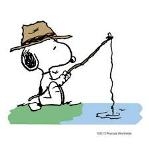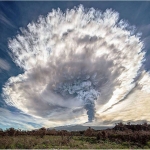rick blaine wrote:Hi TalonGreyWolf,
The Greeks say apnoia - breathless.
The English say apnoea - a cessation of breath, especially during sleep.
Americans say apnea - meaning the same thing.
There's a tendency in medicine and other specialisms to use two words where one would do - they say it's to remove all ambiguity.
So sleep gets added to apnea - which, if you think about it, is saying 'sleep cessation of breath, especially during sleep'.
If it's caused by an obstruction, it becomes obstructive sleep apnea. You can see how it goes, right?
Hypo is a word doctors use for 'less of'. So they have hyper-tension for 'more of tension' (or 'high blood pressure') and hypo-tension for 'less of tension' (or 'low blood pressure').
So hypo-(a)pnea is 'less of apnea' - but still enough of a reduction of airflow to be a problem.
To put some numbers to it, an obstructive sleep apnea is a sleep event where the airway is reduced by 90 per cent (of fully open) or more - and which lasts for 10 seconds or more.
An hypo-pnea is a sleep event where the airway is reduced to 50 per cent (of fully open) - and which lasts for 10 seconds or more.
And both kinds can last a lot more - 20 seconds, 30 seconds is not unusual. One of mine - recorded before I started treatment - lasted nearly two minutes.
Both kinds of sleep event are bad for you. The percentage (or 'saturation level') of oxygen in your blood goes down.
That's bad enough on its own. But as the O2 level drops down, the survival part of the brain fires up - gets you gasping for breath - to end the apnea or hypo-pnea.
And while that burst of adrenalin and gasp for breath may not wake a person all the way up, it sure wrecks their sleep. If you have enough events per hour - even if they're all hypo-pneas and not any other kind - then you're not really getting proper rest.
And 'enough events' (as defined by doctors) goes like this:
0 to 5 (per hour) is considered 'normal'.
6 to 15 (per hour) is called 'mild to moderate'.
16 to 30 (per hour) is called 'moderate to severe'.
30 and above (per hour) is severe.
Why do you feel 'stunned'? I can't say. But I can say this kind of sleep disorder is quite common. Where I live, one in 25 men over the age of 40 have it (although it may not be diagnosed), and one in 50 women over the age of 40 have it (ditto).
Thirty-five years ago, if you did have it, tough. There was no treatment.
Now there is.
Thank you!
That information is what I needed. A breakdown of the words and the numbers (in this case: events) Then when I see my sleep doctor, I can understand more of what is in the report. And in the meantime, I feel better with what is known than unknown.
As for the 'stunned', I thought my sleeping was weak due to my mind wandering everywhere. (i.e. life) It never occurred to me that my breathing or lack of breathing well while I slept would be a reason I feel tired all the time. Why I have a sore throat every morning. Or why the 'morning head fog' seems never to lift. You get my drift. It wasn't until my daughter said something to me in June about my gasping for air during the several time that it struck me something is not right with my sleep.
My sleep has been reduced in quality for at least eleven years if not longer. I attributed it to this or that. Even if hypopnea is only a part of the reason, it helps.
Detachment is not that you should own nothing but that nothing should own you. ~ Iman Ali A.S.
Be with those who help your being ~ Rumi












